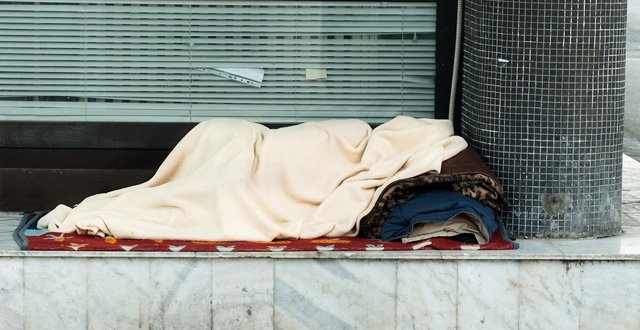The RCPI has called on the Government to urgently take action to address the serious harm to the health of thousands of children in Ireland experiencing homelessness and inadequate housing.
The call was made to coincide with World Children’s Day on 20 November.
Children experiencing poor housing have a 25 per cent increased risk of severe physical and mental ill-health and disability during childhood and early adulthood.
A new paper by the Faculties of Paediatrics and Public Health at the RCPI highlights the “unacceptable” health risks and harm experienced by thousands of children affected by Ireland’s housing crisis and which potentially can have long-term health implications for them into adulthood.
Dr Julie Heslin, lead author on the paper, said delaying action is detrimental to our children and their futures,
“We know that the impact on a person’s health and wellbeing of adverse experiences in childhood lasts well beyond childhood and becomes apparent in adult life as mental health problems, such as depression, anxiety and relationship difficulties, as well as physical disease, such as cardiovascular disease, stroke, cancer, diabetes.
“These children are the future of our society – not just some of these children, all of them. We must listen to them. Where they have no voice and no understanding of their situation, we have a responsibility to speak up for them.”
While it is estimated that approximately 3,800 children are currently homeless, some of these children move to a more stable housing situation over time but others may become homeless again. This means that the total number who experience homelessness is higher if measured over the course of a year, and substantially greater if measured throughout childhood and adolescence.
The Impact of Homelessness and Inadequate Housing on Children’s Health paper summarises the evidence of how children’s health suffers due to living in inadequate housing and describes the effects that the instability caused by frequent moves or prolonged temporary housing has on children’s emotional, social and mental health.
It recognises that the health and wellbeing of children is impacted not just by homelessness but also by overcrowded or poor housing, and by frequent moves from one accommodation to another.
The paper shows that homelessness and inadequate housing causes:
• Higher risk of preterm pregnancy and low birth weight
• Higher rates of asthma, respiratory illness and infectious diseases
• Poor nutrition and obesity
• Less access to developmental opportunities, play, recreation and social activities
• Poorer emotional and mental health, and increased behavioural difficulties
• Less access to preventive health care and lower rates of childhood immunisation
• Poorer educational opportunities, and
• Difficulties in the relationship between parents and their children.
The evidence shows that:
- 38 per cent of homeless children have mental health or behavioural disorders of clinical significance
- Those in unsafe housing are more likely to be bullied and less likely to see their friends
- Twice as many homeless children require emergency hospitalisation
While the Faculties of Paediatrics and Public Health Medicine advocate for a long term solution to the housing crisis they also outlined 20 immediate actions across the areas of policy, service provision, and data and research to address the impact of homelessness and inadequate housing in Ireland.
These include:
- A whole-of-government approach to addressing the service needs of homeless families and their children
- Local coordination of service provision under the auspices of Children and Young People’s Services Committees and resourcing of such services
- Assignment of a key worker to each family
- Prioritisation of homeless children and pregnant women by the health services
- Adequate provision of mental health services for children and their parents and early access to such services
On the publication of this paper Dr Ellen Crushell, Dean, Faculty of Paediatrics at the RCPI said: “Integrated, child-centred services must be provided as a matter of urgency in order to protect these children and to mitigate against the effects of the adversities that they face. Each child has but one childhood and it passes all too quickly.”
This paper was released on World Children’s Day and to coincide with the 30th anniversary of the signing of the UN Convention on the Rights of the Child which states, “Every child has the right to a standard of living adequate for the child’s physical, mental, spiritual, moral and social development.”













Leave a Reply
You must be logged in to post a comment.